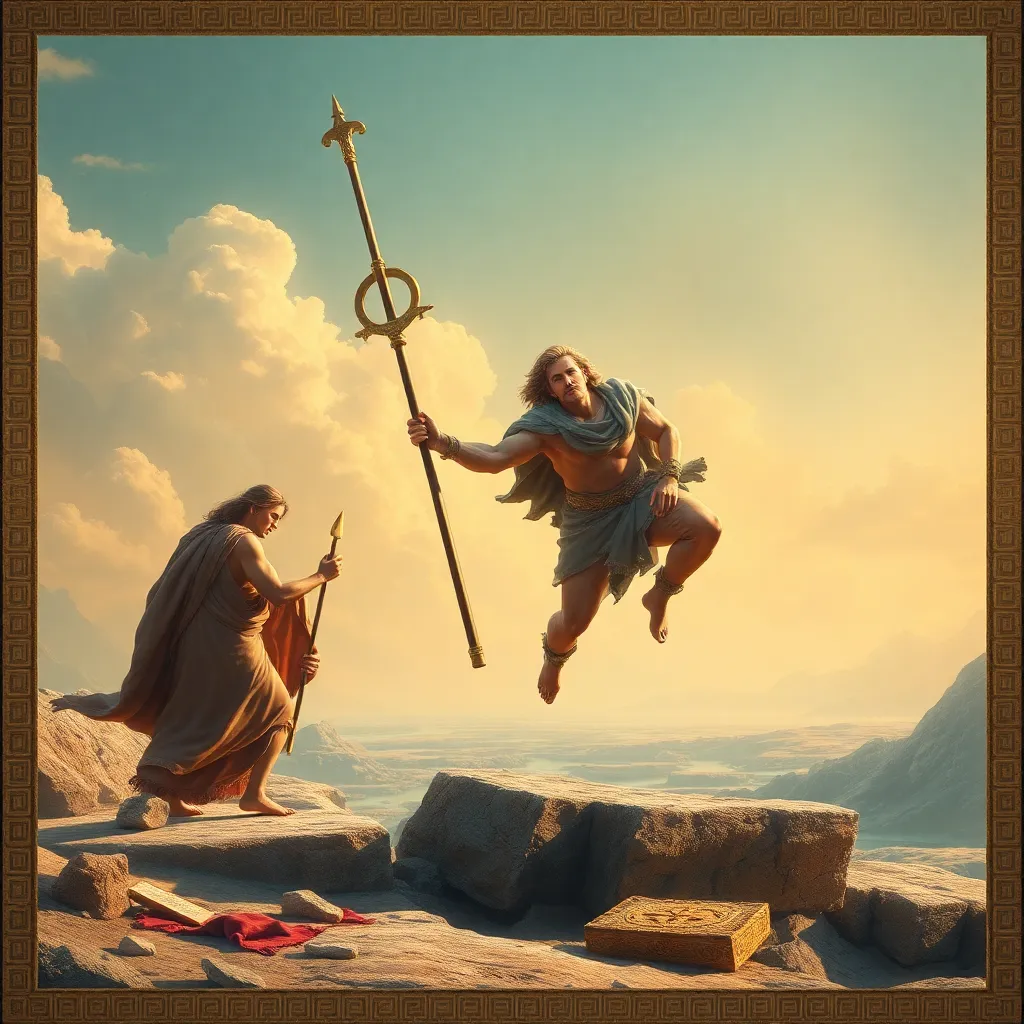The Role of Fate and Free Will in The Odyssey
I. Introduction
The Odyssey, an epic poem attributed to the ancient Greek poet Homer, narrates the adventures of Odysseus as he attempts to return home to Ithaca after the Trojan War. This timeless tale is not only a story of adventure and heroism but also a profound exploration of the themes of fate and free will, which are intricately woven into the narrative. The characters in The Odyssey grapple with their destinies, facing the influence of the gods and the consequences of their own choices.
In this article, we will explore how fate and free will interact in the lives of key characters, particularly Odysseus, and how these themes resonate throughout the epic.
II. The Concept of Fate in Ancient Greek Culture
Fate, known in Greek as “moira,” refers to the predetermined course of events that individuals must follow. In ancient Greek culture, fate was considered an inescapable force that governed the lives of mortals, often intertwined with the will of the gods.
The significance of fate in Greek mythology lies in its inevitability. The gods may influence human lives, but ultimately, they cannot alter the fate that has been assigned. Here are some key aspects of fate in Greek culture:
- Inescapability: Fate is unavoidable; characters often find themselves powerless against their destiny.
- Divine Influence: Although fate is predetermined, the gods play a critical role in guiding or obstructing characters along their fated paths.
- Mythological Examples: Stories of figures like Oedipus and Achilles illustrate how attempts to escape fate can lead to tragic outcomes.
III. Odysseus: A Man of Both Fate and Free Will
Odysseus, the protagonist of The Odyssey, is destined to return home, yet his journey is fraught with challenges that test his character and resolve. The gods prophesy his return, but it is his own decisions that shape the path he takes.
Key points regarding Odysseus’s relationship with fate and free will include:
- Destiny: The prophecy of Odysseus’s return is a clear indication of his fate, as foretold by the seer Tiresias.
- Choices and Consequences: Odysseus makes crucial choices, such as his encounters with Circe and the Sirens, which highlight his ability to exercise free will.
- Balance: The interplay of fate and personal agency is evident as Odysseus navigates his challenges, often relying on his cunning and intellect.
IV. The Influence of the Gods on Characters’ Lives
The gods in The Odyssey often intervene in the lives of mortals, shaping their fates and influencing their choices. Their involvement raises questions about the extent of free will available to individuals.
Notable divine influences include:
- Athena: The goddess of wisdom provides guidance and support to Odysseus, assisting him in crucial moments of his journey.
- Poseidon: The god of the sea harbors a vendetta against Odysseus, causing obstacles that hinder his return home.
- Other Deities: Interventions from gods like Hermes and Zeus further complicate the characters’ struggles between fate and free will.
V. The Role of Prophecy and Omens
Prophecies and omens play a significant role in The Odyssey, influencing characters’ actions and decisions. These elements contribute to the tension between foresight and free will.
Examples of prophecies include:
- Tiresias’s prophecy about Odysseus’s return and the challenges he will face.
- Omens observed by characters, such as birds and other signs that foreshadow future events.
Characters’ reactions to these prophecies often dictate their choices, leading to a complex interplay between destiny and agency.
VI. The Significance of Human Agency
While Odysseus’s journey is central to The Odyssey, other characters also demonstrate the exercise of free will. Their choices have significant consequences, illustrating the themes of agency and fate.
Examples include:
- Penelope: Her cleverness and loyalty enable her to navigate the challenges of waiting for Odysseus’s return, showcasing her agency.
- Telemachus: His journey to find his father represents a quest for identity and agency in a world dominated by fate.
The narrative underscores how characters’ choices shape their destinies, even within the constraints of predetermined fate.
VII. The Conclusion: Interconnectedness of Fate and Free Will
In summary, The Odyssey presents a rich tapestry of fate and free will, with characters like Odysseus, Penelope, and Telemachus navigating their paths amidst divine intervention and prophetic guidance.
The philosophical implications of fate versus free will are profound, inviting readers to reflect on the nature of agency and destiny in their own lives. The themes explored in The Odyssey remain relevant today, as individuals continue to grapple with the balance between fate and free will in their personal journeys.
VIII. Further Reading and References
For those interested in exploring The Odyssey and its themes further, consider the following resources:
- Texts: Homer’s The Odyssey, translated by Emily Wilson or Robert Fagles.
- Scholarly Articles: Articles focusing on the themes of fate and free will in classical literature.
- Greek Mythology Resources: Websites and books that delve deeper into Greek mythology and its key themes.




